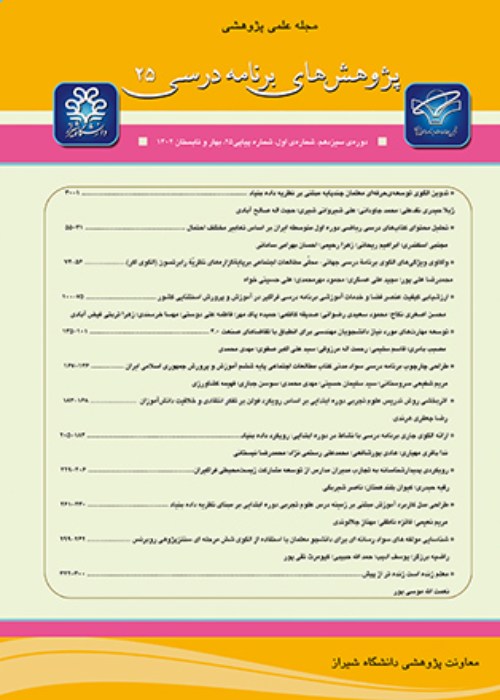The Mediating Role of Self-Efficacy Beliefs in the Relation of Basic Psychological Needs Satisfaction and Perceptions of University Community Quality to Students' Adjustment to University
One of the most considerable experiences in the academic and social life of every person is entering university. Students can face challenges of doing university assignments, being more independent, and undertaking less organized academic activities in this educational environment as compared to school environment. Moreover, students may undergo fundamental changes in their education, social relationships, family relationships and personal affairs. Therefore, it is not contrary to expectations that entering university can be associated with developmental, emotional and environmental problems. Adjustment to this the new educational environment can be considered as determining factor in the success and perseverance of university students. Adjustment is one of the essential psychological characteristics that can play an important role in in responding to the environmental challenges. The process of adjustment to university is a dynamic one that can create a balance between the individual and the environment and lead to academic success. Similarly, lack of adjustment to university can lead to university dropout. Therefore, in order to avoid academic failure and achieve their desired results, students need to learn how to adapt. Adjustment to university is a multidimensional construct which shows how students can do their university assignments and satisfy their educational requirements. Adjustment dimensions are concerned with academic, social, and personal-emotional adjustment, and goal commitment/institutional attachment. Academic adjustment addresses how students handle their university assignments and respond to the academic demands. Social adjustment assesses students’ social experiences and feelings of satisfaction in the social environment and the way students relate to others. Personal-emotional adjustment is related to how students cope with different physical and psychological experiences. Finally, goal commitment/institutional attachment is concerned with how strongly students relate to their educational institution and the way they accomplish their educational goals.Overall, adjustment to university can have a determining role in promoting emotional and social health, growth, and development of students, can affect different aspects of students’ lives, can improve students’ general performance promote their academic achievement, and lead to their success, and finally, can increase social adjustment of individuals in areas outside the university. Considering these and the fact that adjustment to university can affect personal, social and professional lives of students, it is necessary to examine and identify factors which might affect it. Accordingly, the purpose of the present study is to investigate the mediating role of self-efficacy beliefs in the relationship between students’ basic psychological needs satisfaction and adjustment to university on one hand and the relationship between university community quality and adjustment to university on the other hand. Research Questions According to the purpose of the present study, this study was an attempt to answer the following research questions:1- Can basic psychological needs and university community quality predict university students’ self-efficacy beliefs?
2- Can basic psychological needs and university community quality predict students’ adjustment to university?
3- Do self-efficacy beliefs have a mediating effect on relation of basic psychological needs and university community quality to adjustment to university?
Benefitting from a correlational design and using structural equation modeling, this study first examined the relationship between each of the two predictor variables of basic psychological needs satisfaction and university community quality and the criterion variable of adjustment to university environment. The study, then, investigated the mediating role of self-efficacy on the examined relationships. All the relevant variables were of a latent type. The statistical population of this study included all the undergraduate students of Shiraz University during 2015-2016 academic years. Participants were 469 students selected through random cluster sampling. Inclusion and exclusion criteria were also considered for inclusion of participants in this study. Participants, then, filled out The Basic Needs Satisfaction in General Scale (Gagne, 2003), The College and University Community Inventory (McDonald, 1996), Self-efficacy Questionnaire (Muris, 2001), and Student Adaptation to College Questionnaire (Baker & Siryk, 1984) during their regular class time. Reliability and validity of the obtained scores were next assessed using Cronbach's alpha and confirmatory factor analysis and the goodness of fit indices of the model were finally examined.
Based on the obtained results, the proposed research model fitted well with the data of this study. Furthermore, it was revealed that university community quality and basic psychological needs satisfaction had a direct effect on students’ self-efficacy beliefs and adjustment to university. Moreover, self-efficacy had a direct effect on adjustment to university. It was also observed that basic psychological needs satisfaction and university community quality had an indirect effect on adjustment to university through the mediating effect of self-efficacy beliefs.
Based on the findings of this study, it can be concluded that satisfying students’ basic psychological needs and the university community quality can affect students' adjustment to university through increasing their self-efficacy. In other words, satisfaction of such basic psychological needs as autonomy, competence and relatedness, and a high level of university community quality can lead to an increase in students’ self-efficacy and self-confidence in their academic, social and personal lives. This, in turn, can help in accelerating the process of students’ adaptation to university. Therefore, if the basic psychological needs are met and if university community quality is at an acceptable level, learners will be able to show high levels of self-efficacy and can successfully adapt to university.
- حق عضویت دریافتی صرف حمایت از نشریات عضو و نگهداری، تکمیل و توسعه مگیران میشود.
- پرداخت حق اشتراک و دانلود مقالات اجازه بازنشر آن در سایر رسانههای چاپی و دیجیتال را به کاربر نمیدهد.


